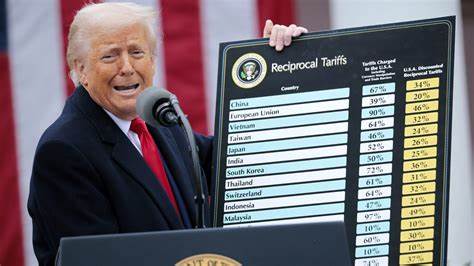The possibility of a fuel price hike looms as the price of Brent crude oil, the global benchmark, surged to $79.76 per barrel on Sunday. This increase, up from $72.88 in December 2024, has sparked concerns about a potential rise in the cost of refined petroleum products in Nigeria.
The surge in crude oil prices is linked to geopolitical tensions, particularly sanctions on Russian oil exports, along with supply concerns and seasonal demand fluctuations in colder regions.
Join our WhatsApp ChannelDepot Owners Report Rising Costs
Several fuel depots have already begun reporting price increases for diesel. Sources revealed that the Nipco depot in Lagos saw a rise of N70, bringing the price from N1,050 to N1,120 per litre on Friday. Similarly, Prudent depot recorded an increase from N1,025 to N1,045 per litre by the end of the week.
An analyst explained, “The surge in Brent crude prices is directly impacting depot owners who rely heavily on imports to meet the demand for diesel.” The correlation between crude oil prices and refined products is well-established, with Brent crude serving as a crucial benchmark for pricing.
Government Oil Price Benchmark Exceeded
The Federal Government’s oil price benchmark in the 2025 budget estimates is $75 per barrel. However, with Brent crude now exceeding this benchmark, concerns are mounting over the financial implications.
An oil and gas expert, Olatide Jeremiah, highlighted that the higher crude prices are likely to prompt importers to adjust their prices, covering increased procurement and shipping costs.
READ ALSO: Fuel Prices Storm: Will Nigerians Face N1500 Per Litre By Year-End?
Jeremiah, the Chief Executive Officer of petroleumprice.ng, stated, “Depots are set to increase the loading price of refined petroleum products on Monday. This suggests a significant possibility of higher fuel prices, especially diesel.”
Implications for Consumers and the Economy
The increase in fuel prices is expected to have broad implications for consumers and the economy. Higher transportation and production costs could contribute to inflationary pressures, further straining household budgets. This scenario echoes concerns raised by economists who blame high energy costs for the rising inflation rate, currently at 33.88%.
The potential hike in fuel prices also raises questions about the sustainability of current energy policies and the need for strategic interventions to mitigate the impact on the economy.
Experts Urge Caution and Preparedness
Experts urge caution and preparedness as the fuel price hike looms. With the current geopolitical tensions and seasonal demand changes, the situation remains fluid, necessitating close monitoring and proactive measures.
Jeremiah concluded, “The industry must remain vigilant and responsive to these changes to ensure a balanced approach that considers both market dynamics and consumer welfare.”
Emmanuel Ochayi is a journalist. He is a graduate of the University of Lagos, School of first choice and the nations pride. Emmanuel is keen on exploring writing angles in different areas, including Business, climate change, politics, Education, and others.


















